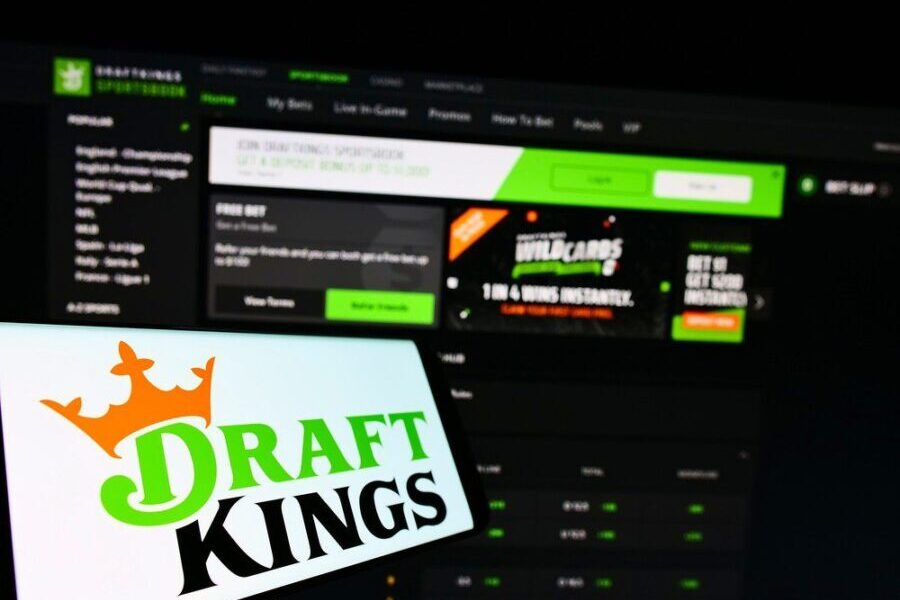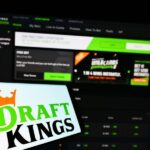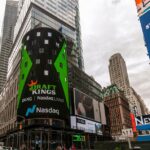DraftKings acquires Railbird Technologies

DraftKings is moving toward entry in prediction markets, having announced the acquisition of Railbird Technologies and its wholly owned subsidiary, Railbird Exchange, a federally licensed exchange designated by the Commodity Futures Trading Commission.
The acquisition supports DraftKings’ broader strategy to expand its addressable opportunity through regulated event contracts.
Railbird’s team and proprietary technology establish a strategic foundation for the company’s future growth in the space, “enabling advantaged economics and long-term product differentiation,” according to a release.
Front Office Sports first revealed DraftKings was in talks to acquire the federally licensed prediction market platform, in July.
“We are excited about the additional opportunity that prediction markets could represent for our business,” said DraftKings Chief Executive and Co-Founder Jason Robins in a statement. “We believe that Railbird’s team and platform – combined with DraftKings’ scale, trusted brand, and proven expertise in mobile-first products – positions us to win in this incremental space.”
DraftKings also confirmed plans to launch DraftKings Predictions, a mobile application that will allow customers to trade regulated event contracts on real-world outcomes across finance, culture, and entertainment. The product will be able to connect to multiple exchanges, enabling DraftKings to offer a broad suite of markets to its customers.
Its offering may expand into additional categories over time, increasing customer engagement and extending DraftKings’ addressable audience.
“This is a transformational moment for our company, and we are thrilled to be a part of the future of DraftKings,” said Railbird Chief Executive and Co-Founder Miles Saffran. “DraftKings’ scale and leadership in the industry creates meaningful opportunities for our team and platform.”
DraftKings Predictions is expected to debut as a mobile application in the coming months.
Sullivan & Cromwell served as legal counsel to DraftKings. Moelis & Company served as financial advisor to Railbird, and Proskauer Rose and Kirkland & Ellis served as legal counsel to Railbird.
Verticals:
Sectors:
Topics:
Dig Deeper
The Backstory
Why DraftKings is betting on prediction markets
DraftKings’ push into prediction markets follows a year of mounting signals that event contracts could become a new growth channel alongside sports betting and igaming. The company has been assessing federally regulated exchanges as a way to expand its addressable market, deepen customer engagement and reach users in states where traditional sportsbooks cannot operate. Competitors and regulators have moved quickly too, creating a volatile environment that blends commodities-style oversight with sports wagering dynamics. The backdrop features legal tests, league objections and a race for scale that favors incumbents able to onboard customers efficiently and navigate compliance state by state.
The contours of the opportunity were framed in midsummer when reporting surfaced that DraftKings was evaluating a federally licensed platform. That piece previewed a strategy to access event contracts under Commodity Futures Trading Commission oversight, a regime distinct from state-by-state sportsbook rules. It also underscored how rivals were positioning, including a potential alignment between FanDuel and Kalshi, a CFTC-regulated exchange battling lawsuits and cease-and-desist orders in several states. Read more on the exploratory phase in DraftKings mulls acquisition of prediction market Railbird Exchange.
From watchful waiting to decisive move
Management telegraphed a cautious posture before turning to execution. On the second-quarter call, Chief Executive Jason Robins told investors the company was monitoring prediction markets while weighing regulatory, partner and capital considerations. He characterized early mover advantage as meaningful but not necessarily dependent on being first, suggesting DraftKings would watch how others fared before committing. That stance is detailed in As second quarter yields record revenue, DraftKings Chief Executive Jason Robins pledges to monitor prediction markets.
The financial context helped. DraftKings set new highs in revenue, net income and adjusted EBITDA in the quarter, supported by improved sportsbook hold, disciplined promotions and steady user growth. Those trends gave the company more flexibility to invest in product extensions that could widen its reach without depending on the rollouts of new betting states. The performance snapshot is in DraftKings sets Q2 record with revenue up 37% to US$1.51 billion. Combined, the operational momentum and the measured tone from leadership set the stage for a move that adds a federally regulated venue for trading outcomes across sports, finance and culture through a mobile-first experience DraftKings can market to its large user base.
Competitive pressure and a patchwork of rules
The attraction of prediction markets is not only incremental revenue. They offer a pathway into jurisdictions like California and Texas, where sportsbooks cannot operate under current law, but CFTC-regulated event contracts may. That geographic wrinkle could matter at national scale, given the size of those states and the potential for cross-selling when a broader sports betting legalization wave arrives. The early reporting on DraftKings’ interest flagged this strategic angle and the risk of regulatory friction, as exchanges argue their contracts are federally supervised swaps while state regulators insist they are, in substance, sports bets. The dynamics are laid out in the July report on DraftKings’ talks.
Meanwhile, FanDuel’s reported discussions with Kalshi highlighted a race among incumbents to secure access to exchanges with the technology and licenses to scale quickly. Kalshi’s valuation, legal posture and multistate challenges underscore both the promise and the fragility of the category. For DraftKings, the calculus involves whether exchange-style pricing and liquidity can complement a sportsbook product while navigating tax burdens that have risen in some states and could push operators to seek margin-friendly adjacencies. Those pressures were a recurring theme in the quarterly call noted in the monitoring commentary.
Signals from New Jersey’s courtroom
A pivotal legal test has been unfolding in New Jersey, where regulators challenged Kalshi’s sports-related contracts. An appellate panel weighed whether those instruments are swaps with commercial consequence under federal law or sports bets subject to state gaming rules. A Jefferies analyst who tracked oral arguments concluded the court appeared sympathetic to Kalshi’s reading of the statute, while hinting guardrails could limit certain contracts such as some player props. The takeaway was that continued operation under CFTC oversight, even with tighter definitions, would favor exchanges in the near term and, by extension, any large operator that partners with or acquires them. The analysis is summarized in Analyst: New Jersey trial a win-win for DraftKings, FanDuel.
For DraftKings and FanDuel, the worst case is prolonged uncertainty that blurs the line between federal and state authority. Any definitive court resolution reduces that overhang and plays to incumbents with established brands, balance sheets and acquisition funnels, the analyst wrote. That logic helps explain the urgency behind strategic moves into regulated exchanges and the emphasis on product differentiation and liquidity to create a defensible moat if event contracts gain broader acceptance.
Leagues and regulators tighten scrutiny
Even if courts lean toward allowing sports-related swaps, high-profile stakeholders are pressing for limits. The NBA cautioned the CFTC that sports prediction markets could threaten game integrity, especially if contracts expand into player props, officiating or injury-related outcomes. The league contrasted the state-level oversight of licensed sportsbooks with the CFTC’s limited experience in sports markets and requested engagement on guardrails if contracts continue. That stance is detailed in NBA expresses concerns over sports prediction integrity to CFTC.
State regulators have echoed the concerns. The Michigan Gaming Control Board recently raised objections to sports event contracts being offered in its jurisdiction, underscoring a jurisdictional clash that could shape how and where exchanges operate. These pushbacks suggest that even with federal permission, the scope of permissible markets may narrow, particularly around player-specific outcomes, and operators will need robust integrity protocols and data-sharing agreements to reassure policymakers.
What the turn means for DraftKings
The decision to fold a federally licensed exchange capability into DraftKings’ ecosystem aligns with its mobile-first product strategy and customer acquisition playbook. If exchanges are allowed to offer a wide range of outcomes, DraftKings can pursue higher engagement through round-the-clock markets beyond game days, potentially smoothing seasonal revenue swings. If regulators impose guardrails, the company still gains a platform for approved outcomes while retaining optionality to integrate with multiple exchanges and scale liquidity across categories.
The financial stakes are material. With revenue up 37% in the quarter and average revenue per monthly payer rising, the company has room to invest in adjacencies that could prove margin accretive compared with taxed sportsbook handle in some states. The opportunity also carries risks. Legal definitions may evolve, league and state scrutiny could tighten and any missteps on integrity would carry reputational costs. But the strategic through line is clear: prediction markets extend DraftKings’ reach to more users and jurisdictions, create product variety that is difficult to replicate and leverage the company’s brand and data capabilities. Whether the category matures into a core business or remains a regulated niche will be determined by courts and regulators in the months ahead, but the company has chosen to compete on home turf with scale, technology and a pipeline ready to capitalize on any green light.








